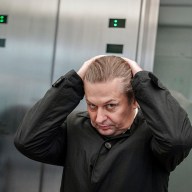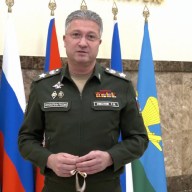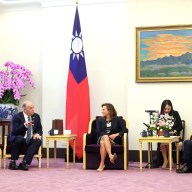OTTAWA – The president of Colombia clashed with NDP and Bloc Quebecois MPs, who questioned the South American country’s human-rights record.
Alvaro Uribe lived up to his reputation for passionate outbursts, occasionally raising his voice and waving an arm when responding to tough questions Thursday at the House of Commons trade committee.
It was the first time the committee heard evidence from a head of state. Uribe is appealing to the committee to approve a proposed trade deal between Canada and Colombia.
“I have the right to reply,” Uribe said loudly as New Democrat MP Peter Julian attempted to move from one question to the next.
“I want Mr. Julian to look at me,” he exclaimed at another point, when the MP appeared to be reading his notes.
Julian pressed Uribe on his denunciations of well-known groups, such as Amnesty International and Human Rights Watch, for saying there are still widespread abuses by the Colombian military and government officials.
Uribe argued that under his administration, victims now have the freedom to come forward with their claims. He declared that he had eliminated the paramilitary threat in his country, and said non-governmental organizations were free to operate in Colombia.
“The vast majority of NGOs move freely in Colombia. There are some cases of these organizations serving terrorist groups and they have to be investigated,” Uribe said.
“I no longer want to be engaged in personal confrontations with people of these organizations that have something personal against me.”
The UN high commissioner for human rights criticized the Colombian government in December for its public declarations against human-rights advocates on its own soil. It noted that the stigmatization of such groups was putting their “life, security and valuable work” at risk.
Just this week, Uribe was accused of trying to undermine the judiciary when a vague government report suggested some judges were connected to illegal activity. The government is already under fire for wiretapping judges, opposition leaders and reporters.
But the UN has also noted the Uribe administration’s willingness to work on systemic problems and its efforts to strengthen the rule of law.
That’s what Liberal and Conservative MPs emphasized in their questions for Uribe, thanking him for appearing before the committee.
Conservative MP Dick Harris said the critics shouldn’t “dwell on individual cases and claim this is the way your country is.”
“As a Canadian, as a person, I believe that where there are legitimate efforts to improve human rights, we should be supporting them,” said Liberal MP Martha Hall Findlay.
While both the government and the Liberals argue human-rights can be improved through increased trade links – coupled with strong labour and environmental side deals – an agreement on the trade deal is not imminent.
Liberal trade critic Scott Brison said his party would like to see a human-rights assessment conducted on Colombia before they make a final decision. It was unclear who would conduct such an assessment.
Uribe said the trade deal would help to bring more people into the official economy in Colombia, and thus link them into the social security net.
He said cementing the deal with Canada would send a signal around the world, perhaps most importantly to Washington, that there is confidence in Colombia. This would in turn attract investors and integrate the country with the world economic community.
















